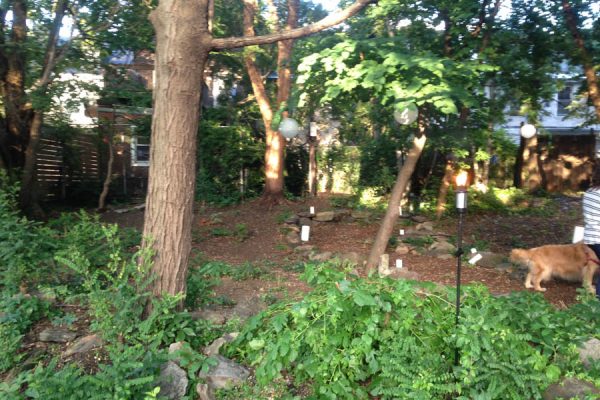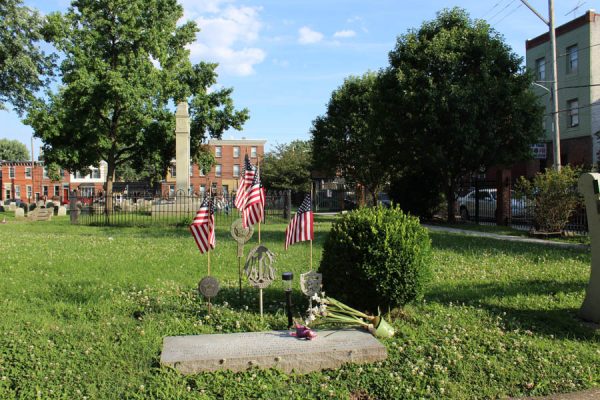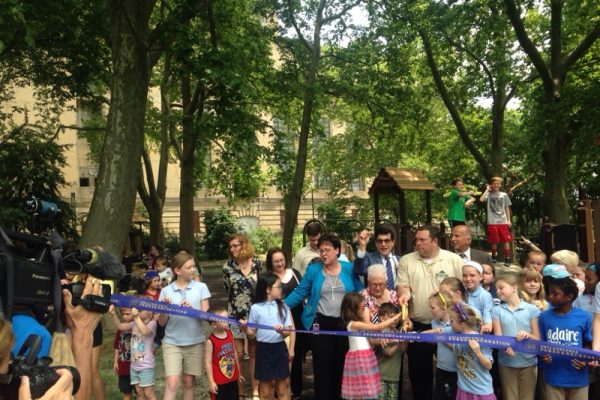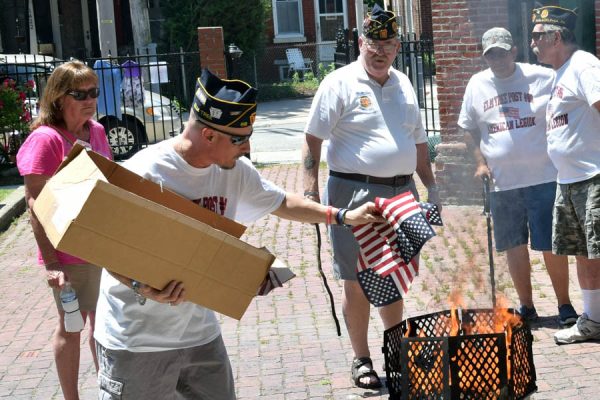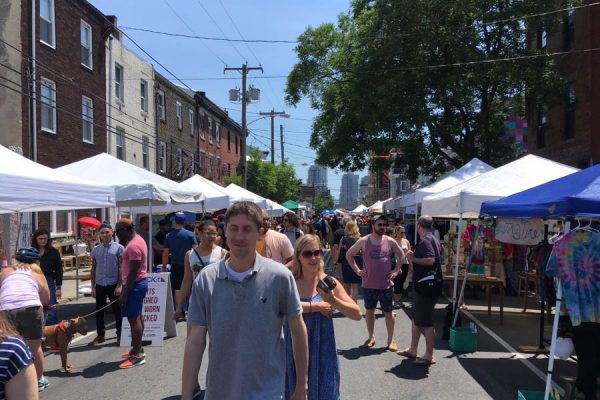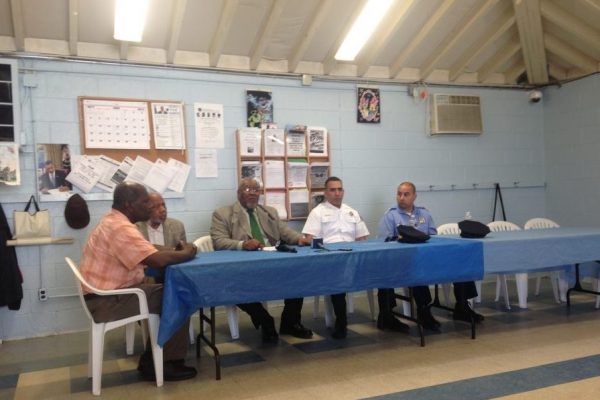Beer Me! ULI Philadelphia Panel Examines the Role of Beer in Neighborhood Development
Like a good neighbor, a brewery is there. That sums up the sentiment of a unique event hosted last week by the Philadelphia chapter of the Urban Land Institute. More than 100 people filled the tasting room at Philadelphia Brewing Company (PBC) to listen to a roundtable discussion on the impact of breweries and brewpubs on neighborhood real estate.
“Brewing Success: How Breweries Are Transforming Real Estate featured an all-star panel, including Bill Barton, co-founder of PBC; Trevor Hayward, co-founder of Evil Genius Brewing Company; Joanna Winchester, Economic Development Director for the New Kensington Community Development Corp; and local developers Jacob Roller and John Longacre.
The panel discussion highlighted the unique challenges and rewards that breweries face when entering a neighborhood and strategies for engaging their new neighbors.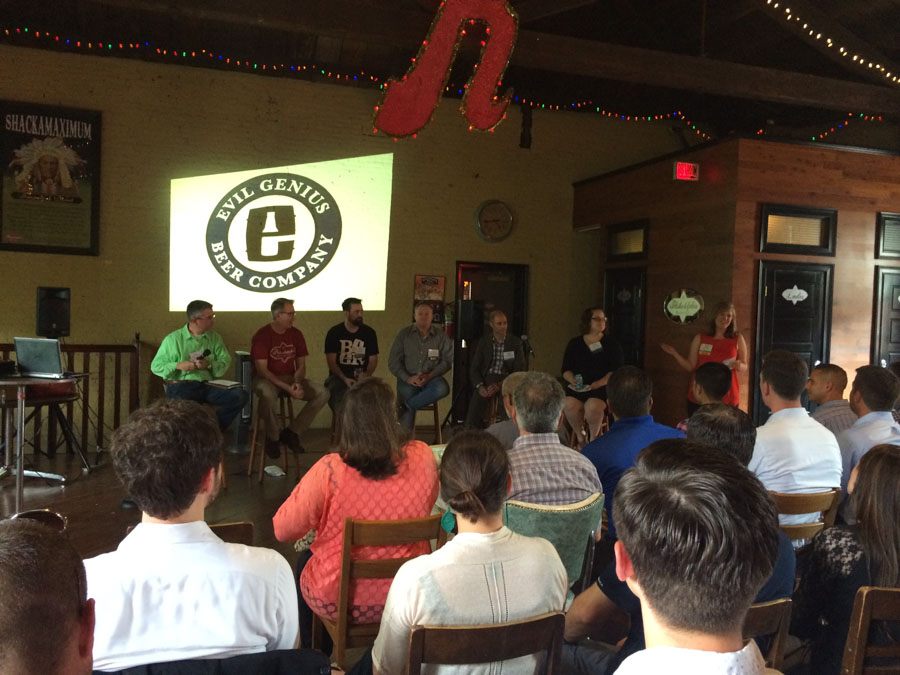
When prompted to explain his interest in developing around beer, John Longacre, whose LPMG Companies is behind the wildly successful South Philadelphia Tap Room and American Sardine Bar in Point Breeze, put it succinctly.
“People want to live near cool stuff,” he told the panel.
It’s hard to argue that anything is cooler than craft beer at the moment. The Brewer’s Association valued the craft beer market at $22 billion in 2015 and the growth shows no signs of slowing down locally or nationally. Take a look at new businesses opening in the Riverwards and you’ll find that many revolve around craft beer.
Joanna Winchester agreed with Longacre’s blunt assessment. What developers ultimately want to do, she said, is “create destinations” and “cause a spillover effect” for patrons to discover the surrounding area. She referenced PBC as an excellent case study for potential future developers.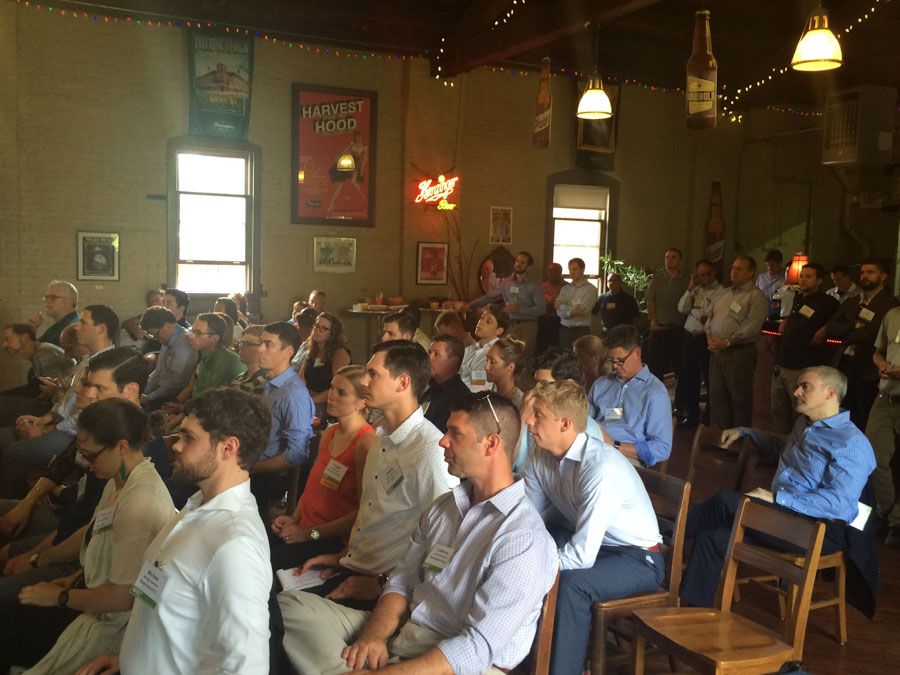
PBC’s Bill Barton recollected to the early days of his brewery’s move to Kensington 15 years ago. The neighborhood was a much different place in 2001. The 125-year-old building at Martha and Haggart Streets, which at one time housed the Weisbrod & Hess Oriental Brewing Company, was perfect for PBC’s plans for future growth. However, it would not have worked without the community’s support and investment. Once a bustling, industrial neighborhood, Kensington bore the scars of decades of economic downturn. There were not many businesses heading into Kensington at the time, and certainly none capable of filling the massive 38,000 square-foot building. Engaging the neighborhood was imperative for PBC’s new home to truly take hold.
“We hosted neighborhood association meetings early on,” Barton said of their neighborhood engagement strategy. They also hosted weekly cleanup events, inviting neighbors to work together over a couple of beers. The cleanup initiative focused on Frankford Avenue and soon spread to the surrounding streets. “Little by little, the neighborhood started to turn around,” he said.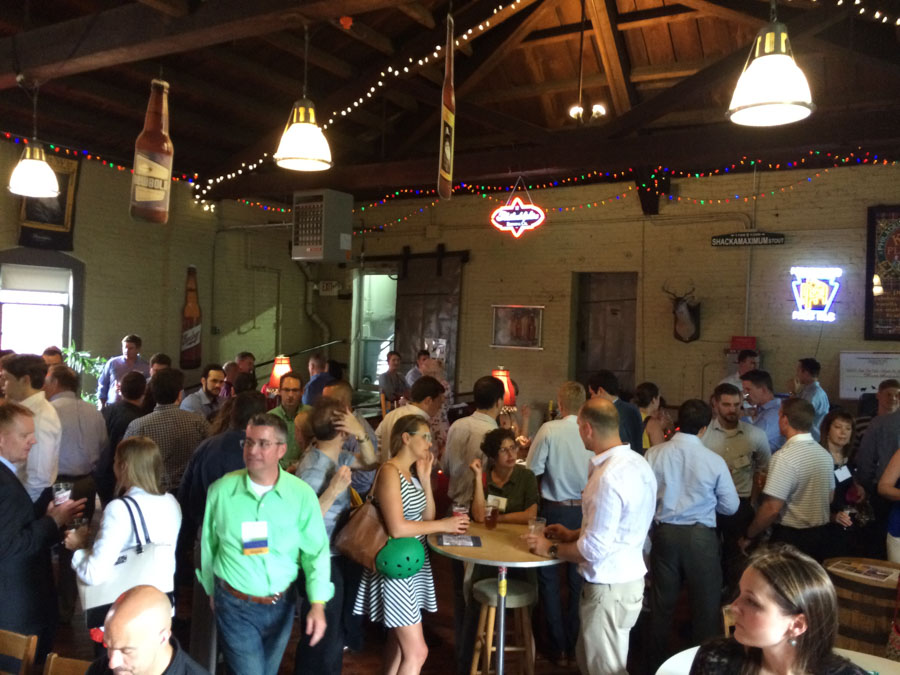
PBC also put a premium on keeping in touch with their building’s historic roots, something that Trevor Hayward and Evil Genius Brewing Company hope to do when they open their new brewery in a 6,000 square foot warehouse at Front and Palmer Streets later this year. Speaking in the un-air conditioned PBC tasting room with high ceilings and exposed beams, Hayward detailed the criteria his team looked for in a potential brewery site. While price and logistics were important factors, they weren’t the only defining qualities.
“We definitely wanted an [existing] building with character,” he said, adding that “It was important for us to be part of a neighborhood and to be a good neighbor.”
Jacob Roller, who has developed a number of properties in Brewerytown, echoed the rest of the panel’s sentiments that beer can play a central role in uniting a neighborhood and giving it an identity. “Brewpubs are places you can visit a couple of times a month. [Gathering places] are really what make a neighborhood a neighborhood,” he said.

